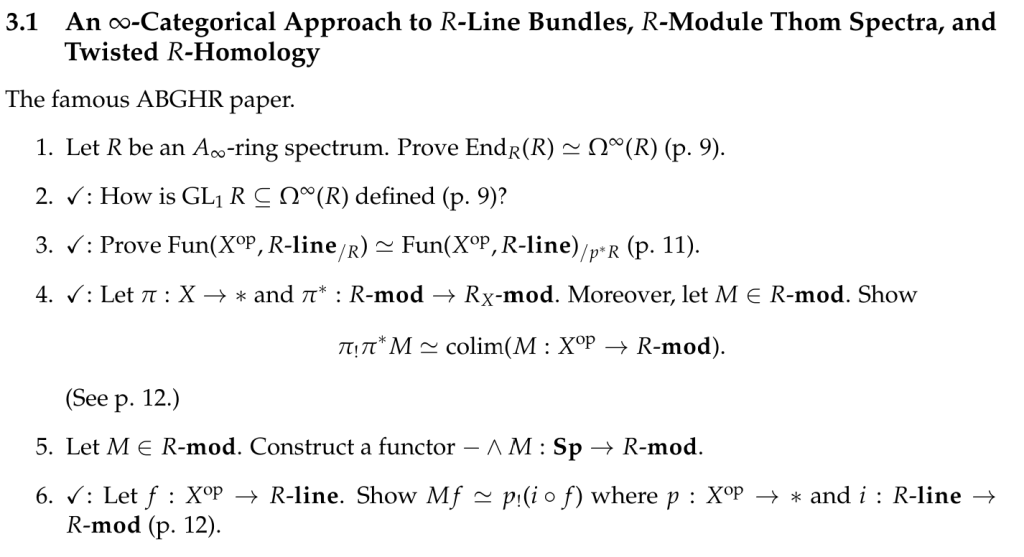Studying as a university student in math was demanding and sometimes admittingly annoying. The cycle was always the same: You visit lectures, go home and revisit the lectures and then try to solve homework questions. Sometimes these homework questions are blatantly unmotivated and rather boring and sometimes even the material in the lectures may not be interesting (at least at the moment).
After graduating, one gains more independence. The absolutely cool thing is that we may now decide what to read and what problems to solve but certainly the downside is a lack of guidance on how to traverse the ocean of available material.
As a PhD student you of course have access to an advisor who can be a person of guidance but they cannot do all the work for you, it’s still the responsibility of the PhD student to study as well as possible.
In my last blog post I talked about my first semester as a PhD student, how I tried using flashcards in the beginning and have now turned to a different study strategy. Since a reader has asked me about the latter, I would like to briefly elaborate on this.
Outline
Right now, I try to follow a four-step procedure: Let’s take any book or paper of your liking.
- Read through parts (e.g. a section) rather quickly but still most of it without checking the details.
- Mark all of the details you cannot do in your head.
- Formulate these details as precise problems.
- Try to solve a number of these exercises.
The most important part is to be honest to yourself. If there is a “trivial” looking statement but you cannot prove it in your head, then these are the most crucial parts to remember and attempt on a piece of paper. You have to be able to understand the easy statements before going onto involved statements.
More often than not those “trivial” statements turn into statements with actual non-trivial content once one actually sits down and unravels everything.
Upsides of the method
I’ve been enjoying this method because it keeps me engaged with the material.
It was often quite frustrating for me to stop after every little detail that I did not grok. Then, I often felt like I got absolutely nowhere for an eternity because I was stuck on this detail for hours. This way I can at least try to absorb/skim a chapter worth of information before stopping for the details. It sort of mimics a lecture course where it’s often impossible to check every detail in real-time and leaves this part for home.
The problems to solve are then clearly motivated, they have a purpose, as they are immediately used in the text. It mimics a famous problem-solving oriented textbooks such as Vakil’s popular textbook in algebraic geometry.
Moreover, these statements appear to be folklore to many if they are mentioned without proof. So it particularly makes sense to spend time understanding them because otherwise everyone but you will understand them!
At long last, it is simply more fun to solve problems than to only read – at least for me. 😉
Quick Example
Here is an example from me reading the famous ABGHR paper on ∞-categorical Thom spectra.

Even if you don’t know the words, you may imagine that e.g. for 2. the paper uses and I wanted to make sure that I look up the precise definition.
Or the paper uses the mentioned property in 3 and I wanted to make sure to understand it since this clearly looks like a folklore result that everyone knows.
While going through 3 as precisely as possible, I realized that a number of subtleties were involved which I surely wouldn’t have realized if I didn’t sit down with a pen and paper. Working through such “easy” results have been a tremendous help for me to understand ∞-category theory.
If you know the words, you may realize that I basically only noted down “easy” questions, but hey, you gotta start somewhere!
Uniqueness
At the end, everyone is unique and should discover their own study styles. There is no go-to method to make you into the next Peter Scholze and there is no formula for perfect learning styles. But there are bonus points if you can find a formula and even more bonus points if you can become the next Peter Scholze!
Don’t forget to take breaks!


Leave a comment